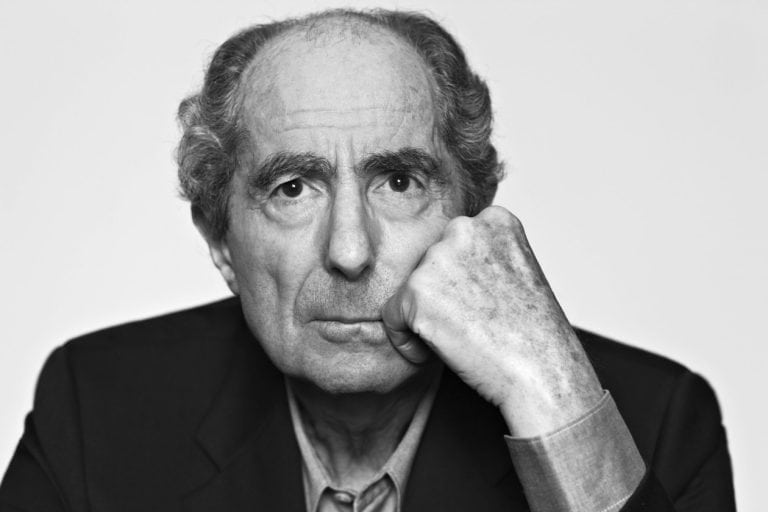Chris Hedges’ counter-revolutionary advice for revolution
Rainer Shea
OpEds
Dateline: November 30, 2019
The quality of Chris Hedges’ strategic advice about how to defeat capitalism reflects the quality of his commentary about communism. This is because communism is the primary force behind history’s anti-capitalist movements, and therefore how well one assesses it equates to how well they grasp the tools for defeating the bourgeoisie. Naturally, the following parts from Hedges’ writings about communism provide good insights into how he views our present task of revolution:
The cult of the gun was disastrous. It distorted reality…[there has been] incalculable damage caused by this cult, including the doomed attempt in 1967 by Che Guevara to form a foco in Bolivia, an effort that would cost him his life. The cult of the gun saw most third-world liberation movements, such as the National Liberation Front (FLN) in Algeria, devolve into squalid military dictatorships when they took power.-from “The Cult of Violence Always Kills the Left”
Lenin in power, like Leon Trotsky, was an opportunist who made promises, such as “all power to the soviets,” that he had no intention of keeping. He employed political terror, widespread arrests and executions to crush the autonomous, self-governing soviets and workers committees. He led a centralized, autocratic ruling elite...Stalinism was not an aberration. It was the natural heir of Leninism.-from “The Dilemma of Vladimir Lenin”
Armando Iannucci’s movie “The Death of Stalin,” a brilliant black comedy, captures what happens when self-interested narcissists, buffoons and gangsters make the laws and rule a state. Once power is based solely on blind personal loyalty and whim, anything, including wholesale murder, becomes possible. Rights are transformed into privileges that can be instantly revoked. Lies replace truth. Opinions replace facts. History is erased and rewritten. The cult of leadership replaces politics.-from “Creeping Toward Tyranny”
Of course these statements contain a lot of false and misleading details. Hedges’ attempt to claim that Che Guevera’s Bolivian revolutionary project was an objectively foolish act, and to then claim that Che’s death was a symptom of a nebulous “cult of the gun” that’s also somehow singularity created a widespread dynamic of Third World despotism, is very bizarre. During his efforts to keep the revolutionary government strong and unified, Lenin didn’t restrict the workers from having a say-he restricted the former bourgeoisie and religious institutions. Hedges’ referencing the film The Death of Stalin is a remarkably weak rhetorical move on his part; The Death of Stalin is filled with historical errors, and it uses these distortions of the truth to reinforce its highly biased retelling of the exaggerated flaws in the era’s Soviet leadership.
But these dishonest claims are no doubt all seen as truthful by Hedges, because they serve to legitimize a line of thinking that Hedges sees as undeniably truthful. Like the creative liberties that were taken to create the propagandistic Death of Stalin, these and Hedges’ other attacks on communist movements and leaders are ways of subtly nudging people towards accepting a larger worldview. In the case of The Death of Stalin, this worldview is one of basic Russophobia. In the case of Hedges’ lectures and writings, it’s one of blanket hostility towards the efforts from history’s communists to put power into the hands of the proletariat.
characterized as a perpetrator of “campaigns of genocide and mass extermination” who advanced “totalitarian systems” that were comparable to Nazism.
It’s unsurprising that Hedges has taken up this line of anti-communism. In a telling paragraph from his 2009 essay Liberals Are Useless, Hedges admitted that he’s a liberal, writing: “I save my anger for our bankrupt liberal intelligentsia of which, sadly, I guess I am a member.” stated that “I'm not a Marxist, nor am I a serious scholar of Marx in any way.” As a result of Hedges’ wariness of Marxism and outright hostility towards Leninism, his advice for getting to a socialist society lacks the strategic clarity which Marxism-Leninism provides.
Perhaps the closest Hedges has gotten to detailing a practical plan for making America socialist is contained in his article Extinction Rebellion, where he calls for people to use civil disobedience to “empower an independent citizens committee to oversee the termination of our 150-year binge on fossil fuels.” This action plan of his, which presumably also consists of the citizens committee enacting the reforms that would make America socialist, will face many obstacles even if the civil disobedience efforts are well organized.
After the bourgeoisie momentarily has their power over the state compromised, they’re no doubt going to greatly step up their resistance efforts to stop themselves from losing their power. In such a scenario of crisis, the capitalists are going to employ paramilitary violence, arrest as many of their opponents as possible, and (as we saw in Bolivia this month) attempt to carry out coups against any socialists who gain positions of power.
Hedges is well aware of these methods that the capitalists have for countering opposition. Yet instead of calling for the only strategy that will drive out the capitalists, which is the overthrow of the state and the creation of a proletarian-led military and law enforcement apparatus, Hedges only speculates that we’ll need a “citizens commission” without acknowledging the great instruments of force that such a commission would require in order to be effective. In this paragraph from his book America: The Farewell Tour, Hedges seems to imply that he believes this commission will succeed in spite of the bourgeoisie still being in power:
Fear is the only language the power elite understands. This is a dark fact of human nature. It’s why Richard Nixon was our last liberal president. Nixon was not a liberal personally. He was devoid of empathy and lacked a conscience. But he was frightened of movements. You do not make your enemy afraid by selling out. You make your enemy afraid by refusing to submit, by fighting for your vision. It is not our job to take power. It is our job to build movements to keep power in check.
At this point you can probably see just how messy and incoherent Hedges’ advice for revolution is. Does he actually want the proletariat to take power, or does he simply hope the proletariat will try to scare bourgeois politicians into making America socialist? Despite his rightful repudiations of social democratic reformists like Bernie Sanders, does Hedges think that socialism can be achieved by reforming our current government? Given his vilifications of communist governments, does he even want to remove pro-capitalist leaders from power over the state, or does he not prefer such an outright overthrow effort because it might result in a repeat of the “autocratic” Leninism?
This contradiction between Hedges’ desire for defeating capitalism and his hostility towards the proven methods for defeating it comes from his wariness towards taking the drastic steps that a real revolution would require. Liberalism comes from the belief that advancing liberty and upholding moral virtues are sufficient for improving society-and that anyone who challenges any types of liberties, or violates morality as defined by the liberal bourgeoisie, is a bad actor.
A major revolutionary practice that liberals oppose for this reason is political violence. Hedges is a liberal who’s attacked not just communists like Guevara for engaging in violence, but has directed a special amount of ire towards physically confrontational American anti-fascist groups like Antifa and Black Bloc. In addition to Hedges’ offensively inaccurate claim that Antifa “mirrors” the violent neo-Nazi groups, Hedges’ attempts to vilify these types of leftists have often involved absurd and even dangerous contortions of reality. As Occupy Wall Street organizer David Graeber wrote in response to Hedges’ attacks against the militant factions of Occupy:
I feel compelled to respond to your statement “The Cancer in Occupy.” This statement is not only factually inaccurate, it is quite literally dangerous. This is the sort of misinformation that really can get people killed….The reason I say this is because, whatever your intentions, it is very hard to read your statement as anything but an appeal to violence….if a group is made up exclusively of violent fanatics who cannot be reasoned with [as Hedges claims], what else can we really do? This is the language of violence in its purest form. Far more than “fuck the police.” To see this kind of language employed by someone who claims to be speaking in the name of non-violence is genuinely extraordinary.
By applying his familiar dishonest framing tactics to demonize militant anti-capitalist strains in modern America, Hedges is trying to undermine the strains of our society that seek to carry out practical steps towards revolution. The overthrow of the bourgeoisie, especially in the highly militarized United States, will require some amount of violent struggle. As Lenin concluded while he was participating in an actual anti-capitalist revolution, “The replacement of the bourgeois by the proletarian state is impossible without a violent revolution.” But Hedges attacks both those who acknowledge the necessity of violence, and those who seek to apply Lenin’s other lessons for building proletarian power.
Hedges is useful for America’s proletarian liberation movement only in that he provides good indictments of capitalism. His disturbing vendetta against militant revolutionaries and his opposition to all of the coherent strains of anti-capitalism (even including Trotskyists and anarchists, who oppose Marxist-Leninists) makes him a reactive figure who tears down those who offer detailed solutions. He doesn’t want to pick a definitive side in the struggle, he only wants to decry the evils of our current system while harping on the real or perceived flaws of the anti-capitalist movements. The one specific political faction that he has recently endorsed is Extinction Rebellion, which isn’t anti-capitalist by any stretch.
The anti-capitalist movement needs to rid itself of the liberal attitudes that have driven Hedges to take up this harmful approach. We need to focus on learning more about revolutionary theory, equipping ourselves for militancy, and building the communist institutions that can see us through towards defeating the bourgeois state. And as Che Guevara believed, the works of demonized revolutionaries like Stalin are what can guide us towards victory. Guevara wrote:
In the so called mistakes of Stalin lies the difference between a revolutionary attitude and a revisionist attitude. You have to look at Stalin in the historical context in which he moves, you don’t have to look at him as some kind of brute, but in that particular historical context. I have come to communism because of daddy Stalin and nobody must come and tell me that I mustn’t read Stalin.
————————————————————————————
If you appreciate my work, I hope you become a one-time or regular donor to my Patreon account. Like most of us, I’m feeling the economic pinch during late-stage capitalism, and I need money to keep fighting for a new system that works for all of us. Go to my Patreon here:

[premium_newsticker id=”211406″]

This work is licensed under a Creative Commons Attribution-NonCommercial 4.0 International License
ALL CAPTIONS AND PULL QUOTES BY THE EDITORS NOT THE AUTHORS
Read it in your language • Lealo en su idioma • Lisez-le dans votre langue • Lies es in Deiner Sprache • Прочитайте это на вашем языке • 用你的语言阅读
[google-translator]
 Keep truth and free speech alive by supporting this site.
Keep truth and free speech alive by supporting this site.
Donate using the button below, or by scanning our QR code.
And before you leave
THE DEEP STATE IS CLOSING IN
![]() The big social media —Google, Facebook, Instagram, Twitter—are trying to silence us.
The big social media —Google, Facebook, Instagram, Twitter—are trying to silence us.


















